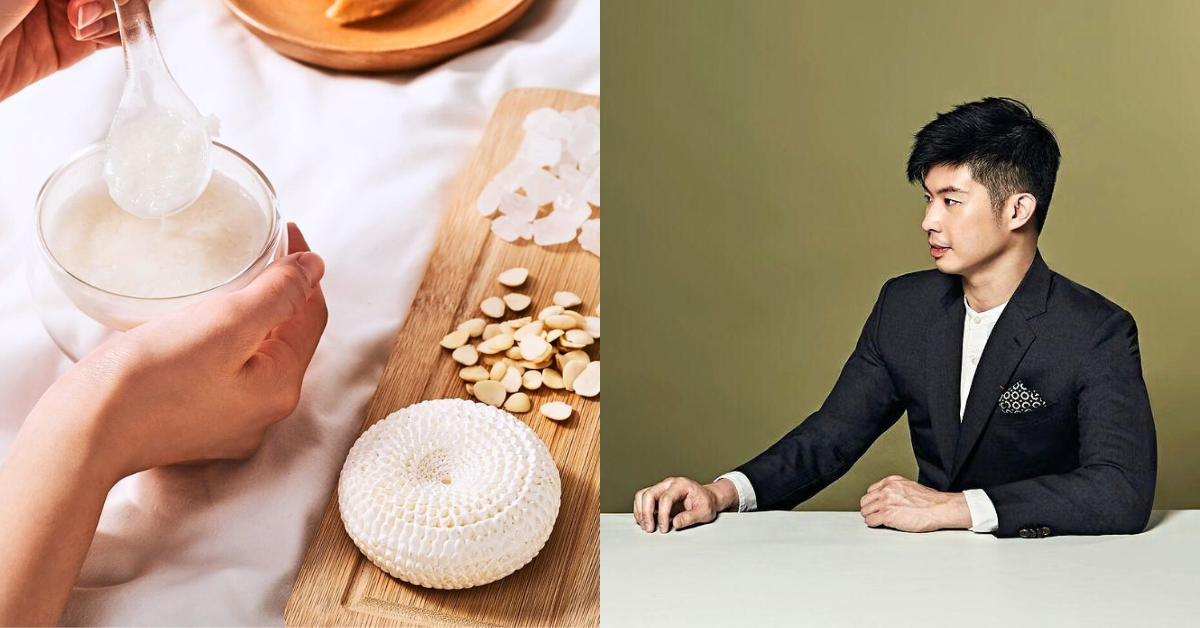There is a saying that family businesses seldom last beyond three generations — “the first generation builds, the second preserves, the third destroys”.
Power struggles are inevitable, since everyone will feel that they have a right to the family fortune, and internal politics in a large corporation will only exacerbate it.
We take a look at some of the infamous family disputes for fortunes and business empires that have shaken Singapore.
1. Tong Garden
Family-owned nuts and snacks brand Tong Garden was founded by the late Ong Tong Guan, who sold peanuts since 1963. He had four children, who are the only shareholders of the group.
Last year, the company saw a familial dispute that was taken to court, with one of his children suing his three siblings.
Ong Heng Chuan claimed that his rights as a minority shareholder were oppressed by his brothers, Ong Teck Chuan and Ong Boon Chuan. At the same time, he had also sued his sister Ong Siew Ann, but did not level any allegations against her.
Heng Chuan also claimed that his brothers had diverted the business — including assets, manpower, logistics and customers — and transferred the group’s trademarks to companies owned by Teck Chuan.
The two brothers held their stand that the transfers were legitimate and were made to save the then-floundering business.
In 2000, the group faced financial difficulties and sold the “Tong Garden” trademark to Villawood Holdings for S$260,000 in a bid to liquidate its assets.
Licences are then granted by Villawood to companies in the group to manufacture and sell Tong Garden products. When the licences expired in 2010, the two companies owned by Teck Chuan were granted a license by Villawood.
Teck Chuan’s companies now produce Tong Garden’s products, but Teck Chuan’s lawyer said that it was because “his client wanted to ensure the survival of the brands that his father had spent his life building”.

By 2008, apart from the companies under Teck Chuan’s management, the rest of the group was losing money and struggling to stay afloat.
Teck Chuan could not sustain the business through the existing entities because the group was troubled with demands for payments and legal actions.
That was why he set up two companies, which bought the group’s business assets at fair market value between 2008 and 2012.
Tong Garden products have since achieved global reach and diversified beyond peanuts.
2. Yeo Hiap Seng
Yeo Hiap Seng Limited (YHS) first saw its roots in 1901 when a man named Yeo Keng Lian set up a soya sauce shop in Zhangzhou, Fujian province, China.
His eldest son, Yeo Thian In, took over the business before moving to Singapore in 1938 to escape the Sino-Japanese War. He established the Yeo Hiap Seng (“Yeo Unite to succeed”) Sauce Factory in 1938 but business was bad due to stiff competition.
Furthermore, the factory was damaged by a bomb during the World War II in 1942 and had to continue operations despite the high black-market prices.
After the war, Yeo quickly expanded his business to producing canned food and bottled beverages. In 1955, the business was incorporated as a private-limited company as more family members joined the business.
In 1956, an agreement was signed to divide the ownership of the company among Yeo Thian In and four of his brothers – Thian Soo, Thian Kiew, Thian Seng and Tian Hwa, as well as two of Yeo Keng Lian’s grandsons, Chee Ming and Chee Kiat.

By the 1980s, YHS was doing so well that it became the second-biggest drinks manufacturer in Singapore and Malaysia after F&N.
In 1985, Thian In passed away soon after handing the company to his son, Alan Yeo.
During the early 1990s, a few Yeo family members who were also shareholders came into dispute with YHS chairman and chief executive Alan over his management style, direction of the company, and investment losses from the Chun King venture.
Alan’s nephew, Charles, joined the shareholders seeking to oust Alan as chairman in 1993.
Alan then went to court in 1994 to petition to dissolve the family holding company. Yeo family’s combined 38.5 per cent stake in the company was then split up.
At the same time, Ng Teng Fong, one of Singapore’s biggest property developers, had been quietly buying YHS shares on the open market through one of his companies, Orchard Parade Holdings.

After YHS had disposed its shares, Orchard Parade Holdings became the largest single shareholder of YHS with 21 per cent of the shares in 1994.
When Malaysian property magnate Quek Leng Chan started buying YHS shares in 1995, a takeover battle ensued between him and Ng.
Although Quek bought up Alan’s shares and Charles joined hands with Quek, Ng managed to acquire three-quarters of YHS shares and became the majority shareholder.
Alan Yeo was replaced as CEO by an outsider — the first non-Yeo to assume the position — and Ng Teng Fong’s son, Robert Ng, took over as chairman in 1995.
In essence, the company did not literally live up to its name, with Far East Organisation controlling Yeo Hiap Seng to this day.
3. Chew Kee vs Chiew Kee
On Chinatown’s Upper Cross Street, two stalls claim to have first introduced soya sauce chicken in Singapore.
The original Chew Kee Eating House — and Chiew Kee Noodle House a few shops down the road — are run by the descendants of hawker Yu Beng Chew who started selling soya sauce chicken in Singapore in the 1940s.
However, each stall tells different and conflicting stories of how Beng Chew came to sell soya sauce chicken.
Both stalls agree that Beng Chew started his hawker business at Nam Yun Coffeeshop, located along Upper Cross Street.
According to the family running Chew Kee, Beng Chew had been selling soya sauce chicken — a dish that he had learnt how to make in Guangzhou before migrating to Singapore — from the start.

Yu Lye Kuan, Chew Kee’s owner and one of Beng Chew’s seven children, said that her older sisters told her that her father had already been selling soya sauce chicken when she was born in 1947.
In contrast, Chiew Kee’s owner, Yue Mun Hoi — Beng Chew’s youngest son — tells a different story.

Mun Hoi claims that his father sold wanton noodles, not soya sauce chicken, at Nam Yun Coffeeshop. Over the years, Beng Chew’s customers requested for a wider variety of food items so he decided to sell soya sauce chicken, inspired after his holiday trip to Hong Kong.
When the original shop was undergoing renovations, both Lye Kuan and Mun Hoi had set up another shop, now Chiew Kee Noodle House, a few doors down the road.
Lye Kuan ran the front end while Mun Hoi ran the back end, but after a few months in 1991, an apparent “dispute” happened (no details were disclosed).
Both went their separate ways, which resulted in Lye Kuan running the original shop, Chew Kee Eating House and Mun Hoi running Chiew Kee Noodle House.
4. The Moh Brothers Of Swee Kee, A Famous Chicken Rice Shop
In 2017, a dispute among the surviving sons of the founder of Swee Kee, a famous chicken rice shop, made it to court.
Moh Lee Twee opened Swee Kee Chicken Rice Restaurant in Middle Road in 1949, but it closed in 1997.
Third son Moh Tai Sang lost his court fight against his two brothers for a share in the Katong family home that sold for S$16 million in 2015.
He had claimed that a quarter of the sales proceeds should go to him, even though he had signed a document transferring his share of the house to his two brothers three decades ago.
The 1985 document stated that Tai Siang was paid S$200,000 for his share in the Branksome Road property.
He denied receiving the money and sued Freddy and Royston, alleging that they have been holding his stake in trust for him all these years.
However, the High Court judge ruled in favour of Freddy and Royston.
In a separate case, Tai Siang sued Freddy to claim a stake in an office building on Middle Road, which used to be the premise of the popular chicken rice shop. The property is now owned by Swee Kee Holdings, a company set up by Freddy.
5. Dovechem Group
In 1960, Ng Joo Soon founded a paint and thinner firm which grew and spanned across Singapore, Malaysia, Indonesia and China, with an annual turnover of about S$500 million.

Over the years, he invited several family members to join the business, and in 2002, he handed the reins to his nephew Andrew Ng but remained as director.
In 1997, when the financial crisis came, the Dovechem Group owed a large bank loan in Singapore and Indonesia.
The elder Ng finally repaid the loan of S$70 million, in the form of instalments until 2004, after negotiations with the relevant lending banks. As a result, the Dovechem Group became delisted.

The banks had asked all the shareholders of the group — which includes his two younger brothers, Ng Ju Aik and Ng Ju Lak, as well as Andrew Ng and Anta Ng Gek Nga — to provide private guarantees.
As a result, the four men took the opportunity to ask Ng Joo Soon to reduce his share from the original 33.1 to 24 per cent, and the remaining 76 per cent were squared by the four, each holding 19 per cent.
By the end of the negotiations in 2002, Andrew’s shareholding had risen to 25 per cent, making him the largest shareholder, while the other three’s fell to 17 per cent. This was to force Ng Joo Soon to step down.

Andrew immediately took over as chairman and president of the group from Ng Joo Soon, revealing his ultimate intention.
Ng Joo Soon became unable to repay the loan he had obtained from the bank to save the company. At that time, as Ng Joo Soon was too weak in the board of directors, he had no power to fight back.
Subsequently, Ng Joo Soon launched a lawsuit against them and was successfully reinstated as a director, taking back his company.
6. Battle Over Fortune Of Shipping Magnate Ng Teow Yhee
When shipping magnate and philanthropist Ng Teow Yhee passed away in 2001, he left all of his assets (worth about S$7 million) to his favourite son, Sebastian, who is one of eight children.
It was reported that two of his other sons allegedly gambled heavily and a third had looked to the elder Ng for financial help. Their mother often asked their father to bail them out.
While the elder Ng favoured Sebastian, he continued to provide for his wife and other children.

However, the other family members were unhappy that the elder Ng left everything for Sebastian.
As a result, Sebastian went to court against his mother Low Ah Cheow, two of his siblings and several nephews. The court dismissed the suit in 2007, but it was overturned in 2009 after an appeal.
The Court of Appeal decided that the words used in Ng Teow Yhee’s will were not clear in showing his intentions. At issue, among other things, were the words “on trust” which had appeared in a key clause in the will and had been capitalised and underlined.

The Court of Appeal queried if this meant Sebastian Ng was to hold the estate in trust for the rest of the family members.
Subsequently, the court ruled that Sebastian was not the sole heir and he will have to share his father’s $7 million fortune with his family members.
7. Sisters vs Sisters
In a recent spat between two pairs of sisters, they are vying over the destiny of four companies worth more than S$120 million left behind by their late businessman father Tan Hock Chong, who passed away in 2003.
All four sisters inherited shares in the four companies. Three of the companies held properties, including 56 units in a mixed commercial and residential development in River Valley Road and 38 units of a commercial mixed-development building in Outram Road.
Blossom Tan and sister Ivy are applying to wind up and exit the companies, while their eldest and youngest siblings Doreen and Julie opposed the court move.
Judicial Commissioner Mavis Chionh held that Blossom and Ivy failed to satisfy the test for ordering a winding-up under section 254(1)(i) of the Companies Act.
Chionh found the four women were “warring siblings” who did not team up to grow the companies despite the fact that each was entitled to participate equally in the management of the companies.
Blossom and Ivy claimed Doreen and Julie breached this legitimate expectation and they felt trapped in the companies.
The judge then said that the siblings’ conduct did not conform to a shared understanding of an equal right to take part in the companies’ management.
With that, the judge dismissed the suit with costs while Blossom and Ivy are appealing against the decision.
Draw Up A Will To Avoid Future Spats
It is not surprising that many domestic disputes arise after the patriarch (or matriarch) passes away.
More often than not, at the centre of these problems lie their wills, or lack of one. As the dead cannot clarify their intent from the grave, such disputes may only be resolved by the courts.
In order to avoid such squabbles over fortunes, the elder should distribute his assets and draw up a will while still alive and of sound mind.
This ensures that he will be able to communicate his wishes, clarify his actions and intent, mediate any disagreement, and take any remedial action if needed.
The will maker can also take into account the existing needs of the beneficiaries. Wills, on the other hand, often take effect many years after they have been executed, by which time the financial situations of beneficiaries may have changed drastically.
Featured Image Credit: Yeo’s / Tong Garden / Dovechem / TripAdvisor / Ng Teow Yhee & Sons Holding Pte Ltd








